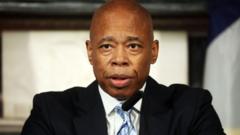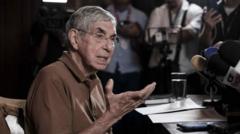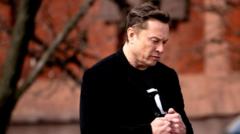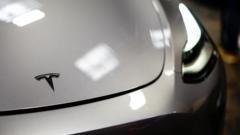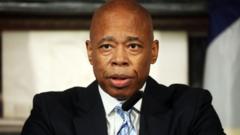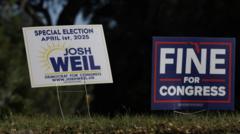As Elon Musk transitions from a billionaire entrepreneur to a significant figure in the Trump administration by leading efforts to reform the federal government, concerns emerge regarding his methodology and potential clashes with established government norms. The influence he wields could change the landscape of U.S. governance, especially at USAID, raising questions about legality, authority, and the implications of private sector leadership in public office.
Musk's Influence in Trump's Government: An Uneasy Alliance or Coming Clash?
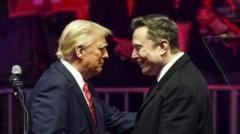
Musk's Influence in Trump's Government: An Uneasy Alliance or Coming Clash?
Elon Musk's unprecedented role in the Trump administration is reshaping federal agencies, particularly USAID, sparking debates on legality and governance within Washington.
Elon Musk, the world's richest man and now an instrumental figure in the Trump administration, has taken on the role of leading the newly formed Department of Government Efficiency (Doge). His recent social media post downplays his influence by claiming his title is simply "Tech Support," yet his actions reveal a much larger ambition as he seeks to overhaul the federal government swiftly and decisively.
In just weeks since Trump's second inauguration, Musk has spearheaded initiatives to access the federal payment system, dismantle an entire agency, and issue ultimatums to civil servants to either resign or face termination. While he has quickly risen to prominence in Trump's inner circle, his aggressive tactics suggest a brewing conflict with established Washington norms.
Musk’s pivot from decades of supporting the Democratic Party to becoming a vocal Trump ally was not immediate. Initially advocating for Trump’s primary challenger, Florida Governor Ron DeSantis, Musk threw his support behind Trump after backing financial contributions totaling $288 million to Republicans. His growing role has positioned him at the heart of Trump’s administration, participating directly in critical decisions regarding governmental reforms.
Despite Trump’s comments that Musk wouldn’t have a West Wing office, reports indicate Musk’s team has made the personnel office next to the White House their operational base. He possesses top-secret security clearance, and his controversial methods often reflect a business-oriented approach, reminiscent of his leadership style at companies like Tesla.
Key changes initiated by Musk have profoundly impacted USAID, the agency responsible for international assistance, which has reportedly stalled operations. Observers noted Musk's labeling of the agency as a “criminal organization” and swift actions leading to the suspension of its website and internal work. The unsettling speed of these transitions evokes concern regarding legal limitations and separation of powers, particularly as Congress has designated USAID as an independent agency.
While prominent Republicans are supportive of Trump and Musk’s efforts to configure agencies in alignment with national security interests, experts highlight that Musk does not have the authority to completely shutdown or restructure USAID. This raises questions about the legitimacy of a private citizen orchestrating such changes within the federal government.
In the backdrop, some voices in Silicon Valley express apprehensions about Musk’s approach to government. The tech sector traditionally values stability and predictability, which Musk’s bold maneuvers disrupt. Critics argue that Musk’s history of destabilizing firms to streamline operations might be detrimental to established public institutions such as USAID, giving rise to anxieties about governance.
Dr. Philip Low, a neuroscientist and former close associate of Musk, predicts potential strife between Musk and Trump, suggesting that Musk may not be content with a subordinate position for long. This sentiment echoes through the ranks of those who have worked alongside Musk, indicating a firm belief that he is intent on taking a primary role in governance.
However, Trump publicly maintains that Musk operates under his authority. He asserted that any major decisions would be approved through the administration, emphasizing that Musk’s influence is ultimately constrained by the requisite approval from the presidency.
As Musk's ambitious reforms collide with the traditional workings of the federal government, the future remains uncertain. Will this partnership thrive, or will the stark differences in leadership styles lead to a significant confrontation in the heart of the U.S. government?


